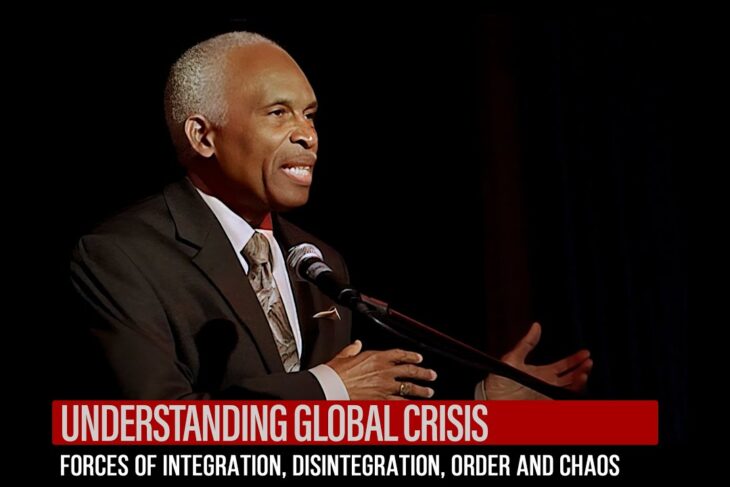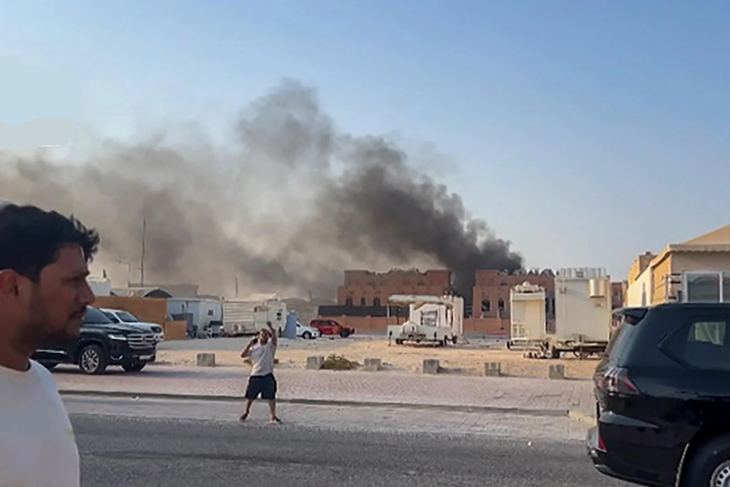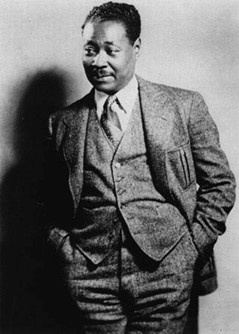
 A fact of history can only be truly understood if one understands the context within which the fact occurred. Thus, neither the Maroon Treaty of 1739 nor the introduction of Crown Colony Government in Jamaica in 1866 can be fully understood without an appreciation of the context within which those two seminal events took place.
A fact of history can only be truly understood if one understands the context within which the fact occurred. Thus, neither the Maroon Treaty of 1739 nor the introduction of Crown Colony Government in Jamaica in 1866 can be fully understood without an appreciation of the context within which those two seminal events took place.
Similarly, an appreciation of the mission of Jesus Christ or that of Bahá’u’lláh cannot be properly understood without an appreciation of the context within which they were born, grew up, proclaimed the Message of God, conducted their missions, conveyed their respective messages and ultimately sacrificed their lives for the glory of God.
In 1817 there was a clear divide between the East and the West. The British Empire covered a very large portion of the world, stretching from Canada to Australia, including India, Pakistan and a large portion of the Far East. It included the West Indies and huge chunks of Africa, including Southern Africa, East Africa and significant parts of West Africa. There were the great dynasties of Europe, the Hapsburgs, the Tsars in Russia, the Prussians in what is now a part of Germany, Napoleon in France.
Although the British slave trade was abolished in 1807, slavery across the British Empire had not yet been abolished. All of the major European nations were practitioners of this heinous practice.
The conditions in sub-Saharan Africa were appalling for the “natives”.
America, as an independent republic, was only 41 years old. Younger than Jamaica is today.
The world was awash with wars as between 1801 and 1817 there were at least 25 wars involving various states inclusive of the Napoleonic Wars, the Russian-Turkish War, the Anglo-Russian War, the Russio-Persian war and others.
It was in this geo-political state of the world that Baha’u’llah was born.
Bahá’u’lláh was born on 12 November, 1817 in Tehran, the capital of Persia. He was born into a family of ease and comfort as his father was a nobleman who held a high-ranking position in the court of the Persian king. His name at birth was Mirza Husayn-Ali. He did not attend regular schools but received instructions at home.
It is reported that from an early age he displayed extraordinary knowledge and wisdom. By the time he became a youth he was very widely known for his keen intelligence, generosity and compassion. It is reported that “He was capable of solving the most difficult problems and of answering the most complicated and profound questions”. He never sought title, positions or honours and upon the death of his father he declined to take up either his titles or his position at court.
In the cause of service to God, Bahá’u’lláh suffered the greatest privations at the hands of the rulers of the day who saw nothing but threats to the establishment in his message of unity, the oneness of God, the oneness of religion, peace and love. He was imprisoned, banished, exiled and imprisoned again. Tehran to Baghdad to Constantinople, to Adrianople and finally to Akha. Riches to poverty. Comfort to the then foulest prison in the empire.
On the afternoon of 22 April, 1863 Bahá’u’lláh entered the garden of Ridvan in Baghdad. It was one of his favourite places as it was a garden full of roses and roses were his favourite flower. He stayed there for 12 days. During his stay there he revealed His Mission to his followers.
Baha’is believe that: “Divine revelation is progressive. God reveals His will progressively through His manifestations who come from time to time as humanity advances from one stage to another. The same is true of the revelation of each manifestation. His teachings are revealed gradually as the understanding of His followers’ increases. ……His purpose is to lay down new laws for humanity’s next stage of evolution”
This progressive revelation of God’s will and teaching through different manifestations has taken us from Abraham to Moses, to Jesus Christ to Mohammed and in this day to Bahá’u’lláh .
The Bab, the forerunner of Bahá’u’lláh, referred to him as “Him whom God shall make manifest”
In its letter of October 2017 the Universal House of Justice said the following:
“From His early youth, Bahá’u’lláh was regarded by those who knew Him as bearing the imprint of destiny. Blessed with saintly character and uncommon wisdom, He seemed to be touched by heaven’s kindly light. Yet He was made to endure forty years of suffering, including successive exiles and incarcerations at the decree of two despotic monarchs, campaigns to vilify His name and condemn His followers, violence upon His person, shameful attempts on His life — all of which, out of a boundless love for humanity, He bore willingly, with radiance and forbearance, and with compassion for His tormentors.
Even the expropriation of all His worldly possessions left Him unperturbed. An observer might wonder why one whose love for others was so complete should have been made the target of such hostility, given that He had otherwise been the object of universal praise and admiration, famed for His benevolence and high-mindedness, and had disavowed any claim to political power. To anyone who is familiar with the pattern of history, the reason for His ordeals is, of course, unmistakable.
The appearance of a prophetic figure in the world has invariably given rise to ferocious opposition from wielders of power. But the light of truth will not be put out. And so, in the lives of these transcendent beings one finds sacrifice, heroism and, come what may, deeds that exemplify their words. The same is evident in each phase of the life of Bahá’u’lláh.
In spite of every hardship, He was never silenced, and His words retained their compelling potency —words spoken with the voice of insight, diagnosing the world’s ills and prescribing the remedy; words carrying the weight of justice, warning kings and rulers about forces that would ultimately sweep them from their thrones; words that leave one’s soul uplifted, awed and transformed, determined to free itself from the thorns and brambles of self-interest; and words that are clear, arresting, and emphatic: “This thing is not from me, but from God.” Might one not ask, in considering such a life: if this be not from God, what can be pointed to that is?”
There is a prayer revealed by Bahá’u’lláh , which perhaps, in my view best sums up our Faith.
“I bear witness, O my God, that Thou has created me to know Thee and to worship Thee. I testify, at this moment, to my powerlessness and to Thy might, to my poverty and to Thy wealth. There is none other God but Thee, the Help in Peril, the Self-Subsisting.”
This is not an empty Faith, but a growing, vibrant Faith touching and positively transforming millions of lives worldwide, whether they become converts or not.
In its final paragraph of its October 2017 letter to the faithful, the Universal House of Justice recognised both the bounty of Bahá’u’lláh’s message, but also its potency and relevance to this day.
“In every land, those who have been attracted to the message of Bahá’u’lláh and are committed to His vision are systematically learning how to give effect to His teachings. Cohorts of youth are becoming ever more conscious of their spiritual identity and are directing their energies towards the advancement of their societies.
“People with divergent perspectives are discovering how to replace contention and the imposition of authority with consultation and the collective search for solutions. From every race, religion, nationality, and class, souls are uniting around a vision of humanity as one people and the earth as one country. Many who have Jong suffered are finding their voice and becoming protagonists of their own development, resourceful and resilient.
“From villages, neighbourhoods, towns and cities are arising institutions, communities, and individuals dedicated to labouring together for the emergence of a united and prospering world that might truly deserve to be called the kingdom of God on earth. On this two hundredth anniversary of Bahá’u’lláh’s appearance, the many who are part of this enterprise are reaching out to those around them with a simple invitation: seize this opportunity to find out who He was and what He represents. Put to the test the remedy He has prescribed.
“His coming offers sure proof that the human race, threatened by numerous perils, has not been forgotten. When so many people of goodwill throughout the world have for so long beseeched God for an answer to the problems that beset them in their common homeland, is it so surprising that He should have answered their prayer?”



